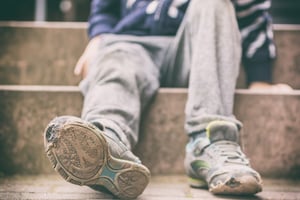Depression May Diminish Response to Shingles Vaccine
 |
The Depression Substudy of the Shingles Prevention Study (SPS) was designed to evaluate the association between major depression and immune responses to a high-titer live attenuated varicella zoster virus (VZV) vaccine (zoster vaccine), which boosts cell-mediated immunity (CMI) to VZV and decreases the incidence and severity of herpes zoster (HZ). The depression substudy was a two-year longitudinal cohort study of 92 community-dwelling adults 60 years of age and older who were enrolled in the SPS, a large, double-blind, placebo-controlled Veterans Affairs Cooperative zoster vaccine efficacy study.
They found that depressed patients have diminished VZV-CMI responses to zoster vaccine, and treatment with antidepressant medication was associated with normalization of these responses. “Because higher levels of VZV-CMI correlate with lower risk and severity of HZ, untreated depression may increase the risk and severity of HZ and reduce the efficacy of zoster vaccine,” they concluded.
(Image: Alexander Raths/Shutterstock.com)





